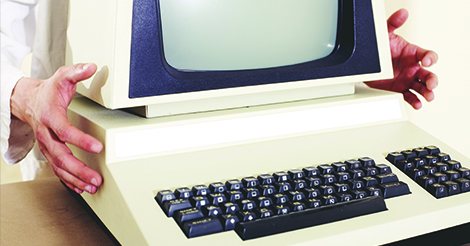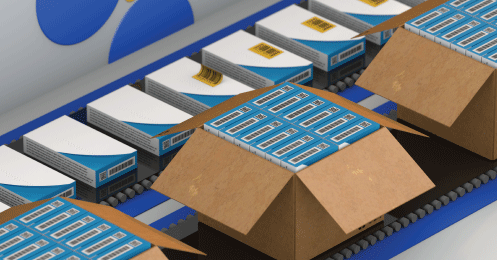There are many reasons why your business may decide to upgrade your existing technology and business management software systems. For example, when a software systems decides to end support for a legacy operating system (think Windows XP), when new technology and opportunities become available, when a business changes processes or when servers and hardware needs to be replaced. In anticipation of these frequent changes, many modern software vendors provide “maintenance programs” in which customers pay an annual fee to get regular upgrades. This reduces the cost of purchasing new software outright and ensures the customer is always on the latest version of the system, using the most up-to-date technology. In addition, troubleshooting issues through the vendor’s support department tends to be quicker and easier when people get to work with familiar and up-to-date systems. Compared to other business assets such as equipment and vehicles, internal business systems need to be upgraded on a much more frequent basis. Therefore, keeping up-to-date with product releases minimizes the amount of downtime required to implement a new version. For those businesses operating legacy systems the upgrade process becomes much more painful.
Upgrade Costs
Most on-premises software vendors charge a percentage of total license costs each year as their maintenance fee, which ultimately pays for new functionality and the upgrade process. Depending on the software tier, these percentages can fall anywhere between 15% and 22%. For cloud-based software solutions, upgrade costs are usually included with monthly license fees. When speaking with vendors about maintenance fees and upgrades, make sure to ask about customization as some vendors will charge extra to have this upgraded as well. Even when receiving regular upgrades there will be some work involved to update your existing version and test the system, although on a much smaller scale than when starting from scratch or moving from a completely different system.
If you have not been updating your business management software on a regular basis or are looking to move to a completely new system, there are certain decisions that you can make in order to ensure the upgrade process is as painless as possible.
Choose Your Data Wisely
If you're upgrading to a new system, data migration will be one aspect of the entire software implementation process, however, after employee training it tends to be the most expensive and time consuming. This is because, the right vendor will not only move the data from your existing system into the new one, but they will also work with you to clean up and “massage” the data so that you start with the right information. For example, vendors can assist in changing product codes or categories should you decide to follow a new standard. The idea with data migration is to focus on quality and not quantity – some data may not need to be moved over to the new system and instead can remain in old databases for referencing purposes. In some cases businesses don’t want to move over any information as a way to start fresh with their data, but at a minimum you will want to move the following information:
- Customers with outstanding balances
- Outstanding accounts receivable balances
- Vendors
- Accounts payable balances
- Active inventory items and pricing information
- General ledger chart of accounts
- Opening entries
Map ERP to Existing Business Processes
When businesses don’t update their software on a regular basis, they can get stuck following specific processes which may no longer be relevant. When starting the search for new software it is important to organize workflows and processes by department and then break down why certain tasks are performed the way they are, and if there is room for improvement. There may be new technology available that can help automate processes which previously involved a lot of manual work. Finding a software vendor that becomes a trusted advisor will provide you with objective insight into how to better manage certain aspects of your business. By adapting your processes to fit with functionality offered in their software, it will save you time trying to come up with workarounds. Although this may involve more training and investment in the beginning, it will save you time in the long run.











